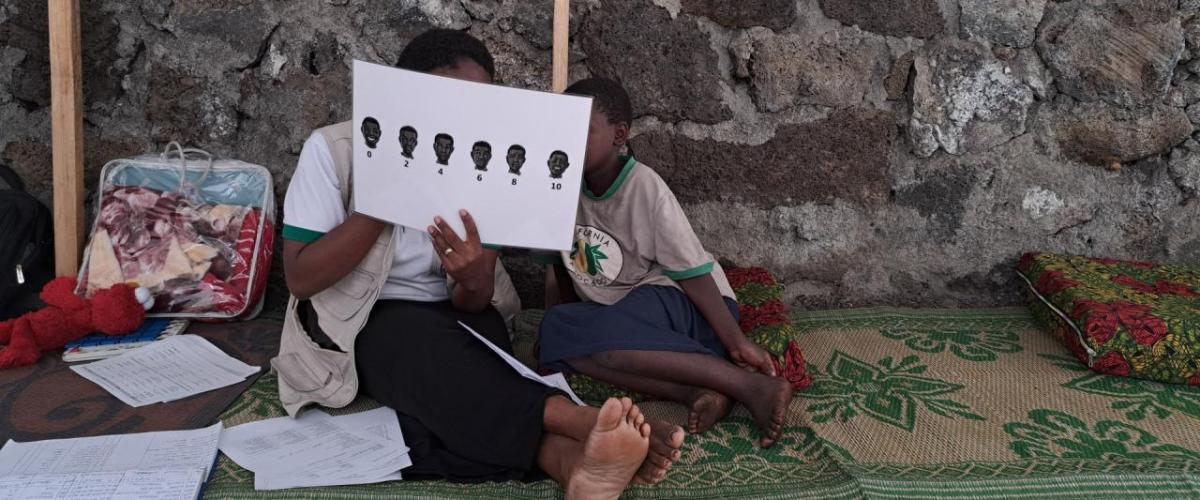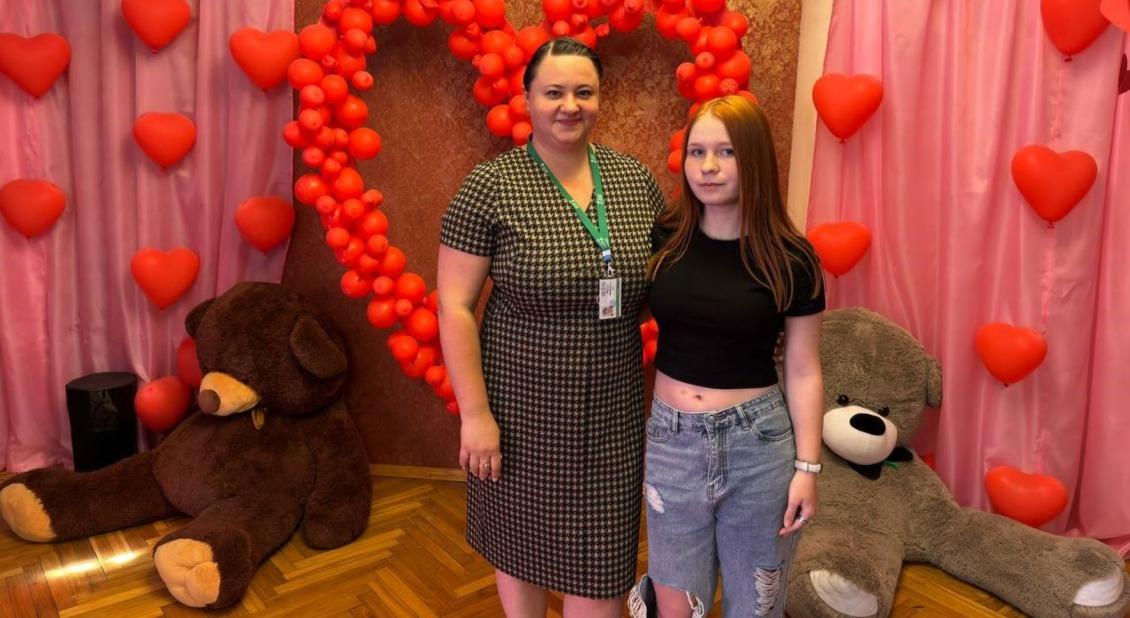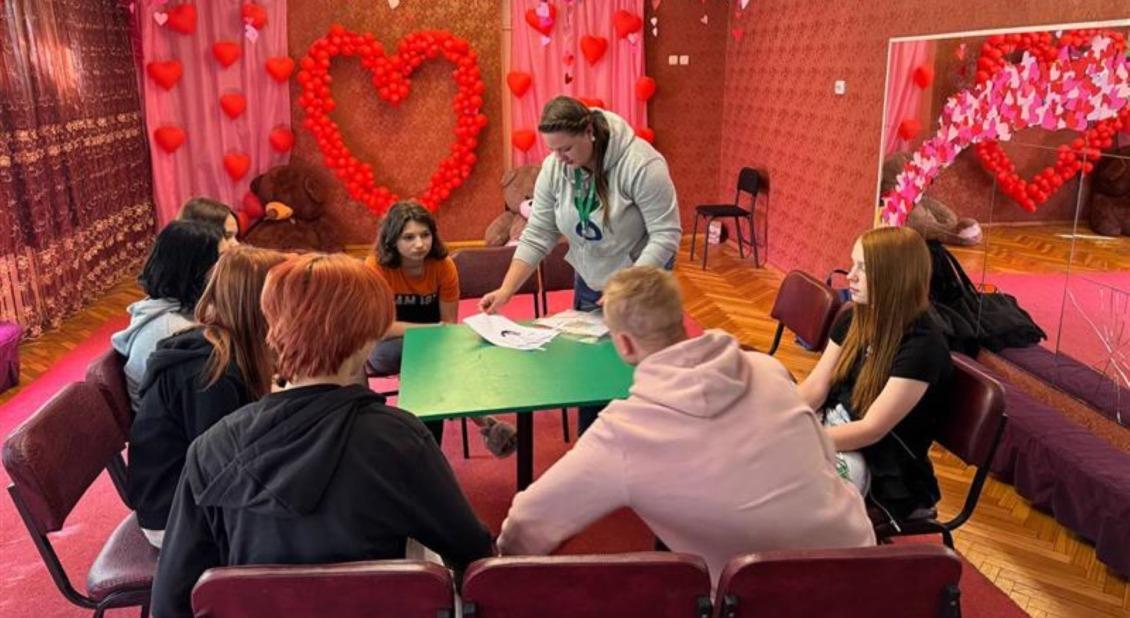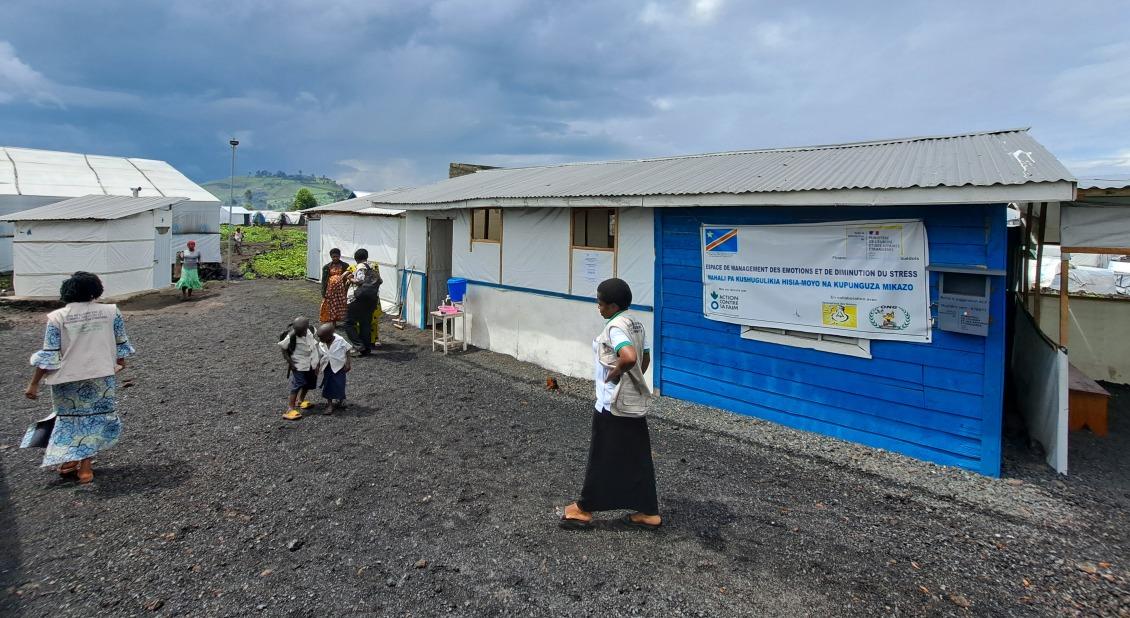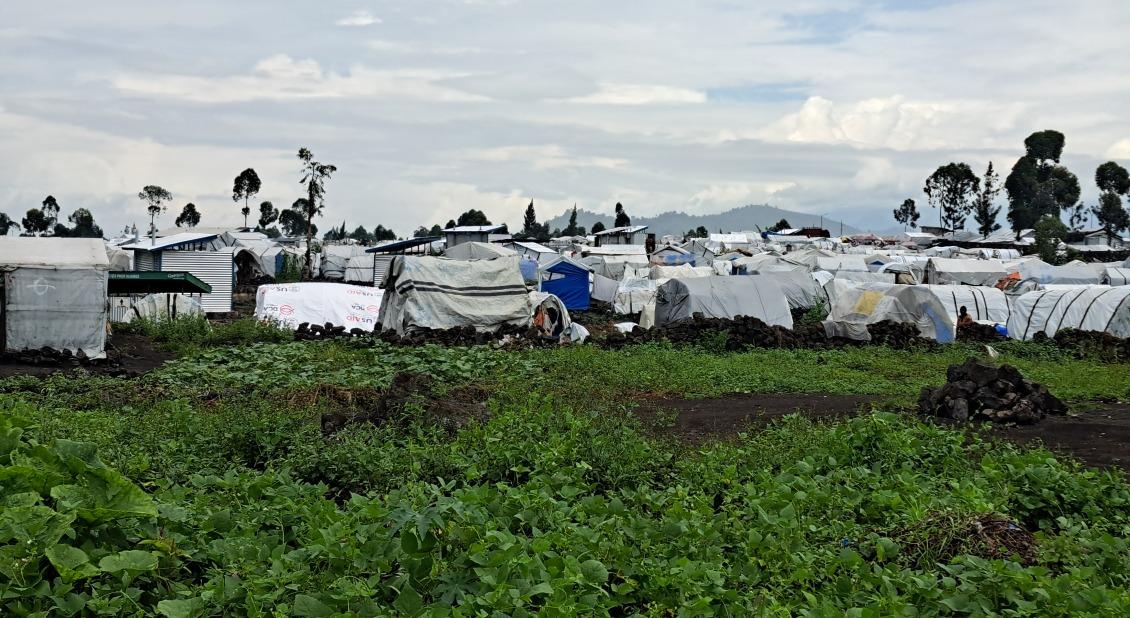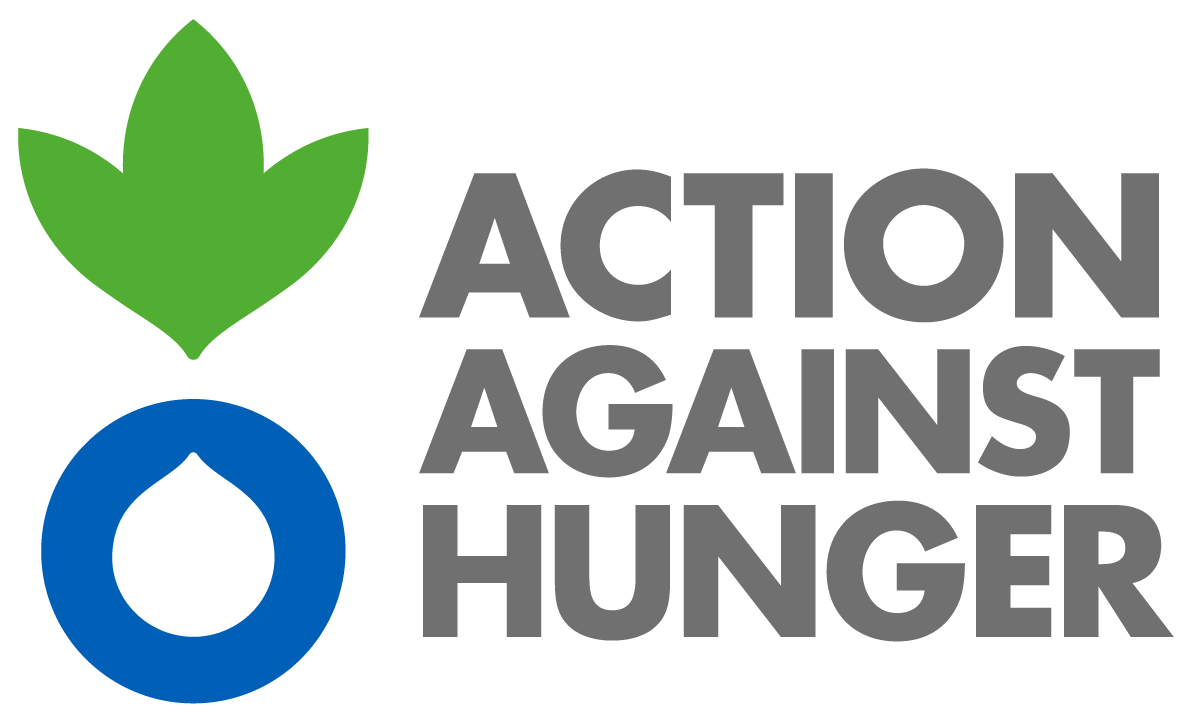Mental Health Heroes: Celebrating Action Against Hunger’s Psychosocial Workers
In Conflict-Ridden Communities, Their Support is a Lifeline
Mental health crises are often invisible, but in times of conflict, they’re almost always there. War and violence turn lives upside down, leading to displacement, loss of livelihoods, trauma, and the grief that soon follows.
In America, it can be hard to imagine constant conflict. But around the world, conflict is on the rise. Citizens may be subjected to violence, sexual abuse, and injuries; many have their farms burned and their homes looted, their water systems destroyed, their markets bombed, and their hospitals attacked.
In America, it can be hard to imagine constant conflict. But around the world, conflict is on the rise. Citizens may be subjected to violence, sexual abuse, and injuries; many have their farms burned and their homes looted, their water systems destroyed, their markets bombed, and their hospitals attacked.
Although conflict is obvious to the human eye, the mental health crisis often isn’t — and it’s an emergency that can carry on for decades after the conflict ends. That’s why Action Against Hunger provides support in some of the world’s most dangerous environments, ensuring that future generations feel safe, supported, and healed from past trauma. Our psychosocial interventions offer a holistic approach during humanitarian crises to address both psychological and social needs, at both the individual and community levels. In crisis situations, psychosocial impacts can include social breakdown, an increase in gender-based violence, psychological distress, mental health issues, and individual difficulties conducting daily activities.
A vicious cycle
Conflict is the primary driver of hunger. When people can’t access enough food, they often become depressed, tired, or anxious. Food insecurity also impacts physical well-being and can cause psychological or developmental challenges. When their mental health is impacted, individuals often don’t have the energy or resources to feed themselves or their families. It can become harder for people to earn money, engage in social activities, or maintain a job.
The vicious cycle is only exacerbated when their communities are struck with shells and missiles. Those who are forced to leave— like the 120 million people forcibly displaced— end up with nothing and must start their lives over from scratch.
Conflict, hunger, and mental health crises are closely intertwined. Action Against Hunger is working in Gaza, Sudan, Lebanon, Yemen, Syria, Ukraine, the Democratic Republic of Congo, and beyond to help people survive and rebuild their lives.
Here are some ways our teams confront mental health crises:
Distress in the Democratic Republic of Congo
Elisabetta Dozio supervises mental health and psychosocial support for our programs in the Democratic Republic of Congo. She frequently visits North Kivu and sees the crisis firsthand.
Here, fighting between armed groups and the Congolese army has already displaced 2.7 million people.
“I am used to going to camps [for internally displaced people], but this experience was very violent,” said Dozio. “I haven’t seen anything like it for a long time. Living conditions are unbearable. People are living in makeshift shelters, many of them in very small spaces.”
Dozio was distressed upon hearing the testimonials of people living there. Some even expressed thoughts of suicide. One person said, “I’m alone, the only solution is to die.”
Another said, “We’d rather go back under the bombs than die of cholera or hunger.”
Most of the people living there have been victims of traumatic events, said Dozio. The living conditions are poor. “When it rains, the ground gets muddy and the tarpaulins get damaged and torn. Conditions are very unhealthy, with very limited access to drinking water. Food distributions are inadequate, and people are going hungry. The humanitarian response is not meeting needs.”
In 2022, Action Against Hunger started implementing increased mental health support for people in North Kivu. Dozio and psychosocial workers partnered to ensure that the sessions could address the needs of the displaced people.
It can be difficult to confront and treat post-traumatic stress disorder (PTSD) while the crisis is ongoing, both in the camp on its outskirts. Action Against Hunger’s intervention, called Emotional Stabilization Protocol, provides tools for managing anxiety, intrusive thoughts and nightmares. It helps people in distress to regain a sense of security and emotional stability that can encourage them to focus on what they can control.
“It is normal to have nightmares, but these men and women need to be given the opportunity to take control of what is happening to them,” said Dozio. In the flood of emotions, sometimes a positive thought comes to mind. “Some see their village in their thoughts, and they see it rebuilt. For a moment they are soothed, and they don’t want to go back to reality.”
During these sessions, children are divided into age groups and take part in breathing and relaxation exercises. Dozio is especially worried about them.
“What will become of these children?” she asked. “How can we hope to limit the circle of repetition of violence when we live like this?”
Children are included in the Emotional Stabilization Protocol from an early age: some babies are just a few months old. Particular attention is also paid to pregnant and breast-feeding women, to limit the transmission of stress from mother to child.
Trauma in Eastern Ukraine
The war in Ukraine has left 14.6 million people in need — but it’s children who pay the highest price. Since the start of the invasion in February 2022, more than half of all Ukrainian children have been displaced and 2,200 have been killed or wounded. The upsurge in hostilities, particularly in East Ukraine, is endangering both the lives and mental health of children.
On July 8, 2024, Russian missiles struck a children’s hospital in Kyiv. The attack left dozens dead and wounded, including several children. This is only one example of the violence that children have faced since the war began.
Displacement, a precarious economic situation, incessant bombardments, the loss of loved ones, and the disruption of education and health systems have had devastating effects on the cognitive development and mental health of Ukrainian children. According to a UNICEF survey, half of young people aged 13 to 15 suffer from sleep disorders, and three-quarters of children and young people aged 14 to 34 said they needed emotional or psychological support.
“Every airborne alarm exacerbates children’s anxiety and loss of learning,” said Yuliia Dikalova, Deputy Manager of Action Against Hunger’s mental health and psychosocial support programs in Kharkiv, Ukraine’s second largest city. Many people have been displaced to Kharkiv, but even here, strikes on densely populated areas are increasing. Since May, Action Against Hunger has increased its response and reached over 1,500 children with programs aimed at psychosocial and psychological support.
Yuliia fears for the future of Ukrainian children: “40% of Ukrainian children no longer have access to formal education due to the security situation or the destruction of educational infrastructure. Online education is regularly disrupted by power cuts caused by bombardments. The traumas caused by the war will have far-reaching, long-term repercussions.”
Seated between teddy bears and heart-shaped pink balloons, a dozen children and teenagers attend weekly psychological and psychosocial support sessions led by Marina Nechaieva, a psychologist with Action Against Hunger in the Kharkiv region. In the last few months, Marina has worked to help children feel stabilized and safe amidst their distressing environments.
“These children often come from the Donbass region or from areas close to the front line. This means they left under bombardment, having been injured or having lost a loved one,” said Marina. “Many show signs of anxiety and depression. Each session incorporates drawings or games and techniques to soothe them. I strive to create a relationship of trust with the children and invite them to reflect on their lives before, their fears, the changes they have faced, but also to project themselves into the future.”
Sixteen-year-old Anastasia took part in Action Against Hunger’s psychological and psychosocial support sessions at a children’s rehabilitation center in Kharkiv. She’s originally from Luhansk but was forced to leave due to the conflict. She left in the hopes of finding safety, but she was instead met with an uncertain future.
Anastasia arrived in Kharkiv during the first months of the full-scale invasion. Despite the crisis conditions, she feels supported by Action Against Hunger’s psychosocial support groups.
“I found the sessions very helpful,” she said. “I had some difficulties when I was a bit upset and didn’t want to answer, but after the discussion, I felt better and it was easier to share how I felt. My self-esteem also improved.”
Today, Anastasia is more interested in actively sharing her experiences and opinions. Even amid the ongoing war, Anastasia finds herself dreaming of her future. “I want to graduate from university and become a student at the police academy,” she said.
The longer the conflict goes on, the greater the burden on Ukrainian children. There’s no end in sight. Humanitarian aid — and ample funding — is essential to support children like Anastasia in the days to follow.
Action Against Hunger in the Democratic Republic of Congo and Ukraine
Action Against Hunger is committed to providing lifesaving assistance in the Democratic Republic of Congo (DRC), including nutrition and medical care, water, hygiene, sanitation and psychosocial support. We have worked in DRC since 1997 and has programs across North Kivu and displacement sites in Goma.
In Ukraine, Action Against Hunger works with the most vulnerable people both directly and through Ukrainian partners. From the start of our intervention in March 2022 to February 2024, we have helped nearly 960,000 individuals through programs aimed at improving mental health support, food security, hygiene, nutrition and more.
For more about our work on mental health programs, click here.
About Action Against Hunger
Action Against Hunger leads the global movement to end hunger. We innovate solutions, advocate for change, and reach 21 million people every year with proven hunger prevention and treatment programs. As a nonprofit that works across 59 countries, our 8,900 dedicated staff members partner with communities to address the root causes of hunger, including climate change, conflict, inequity, and emergencies. We strive to create a world free from hunger, for everyone, for good.
**
Written by Ana-lina Thoueille, Kenneal Patterson and Inès Olhagaray

